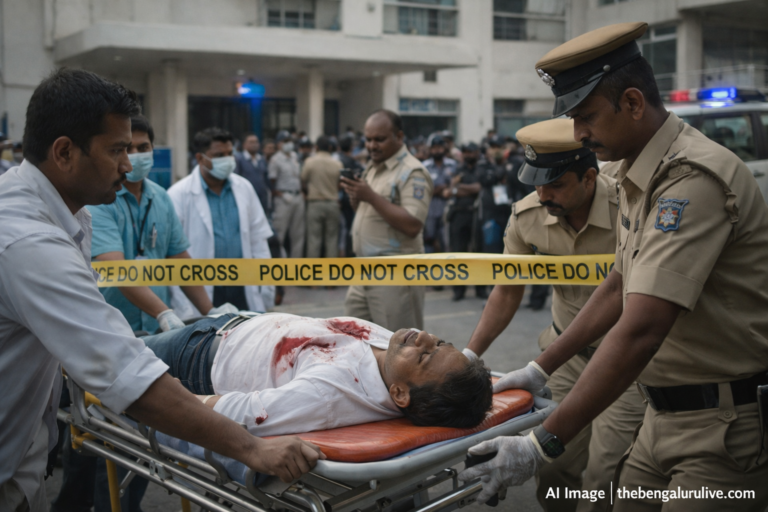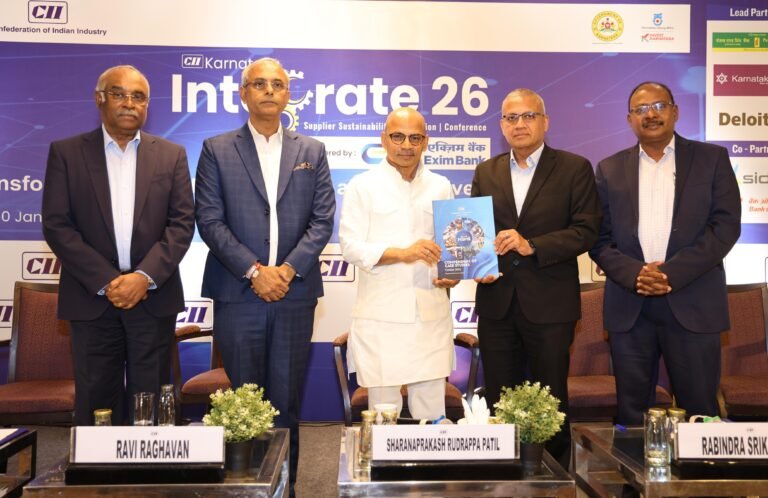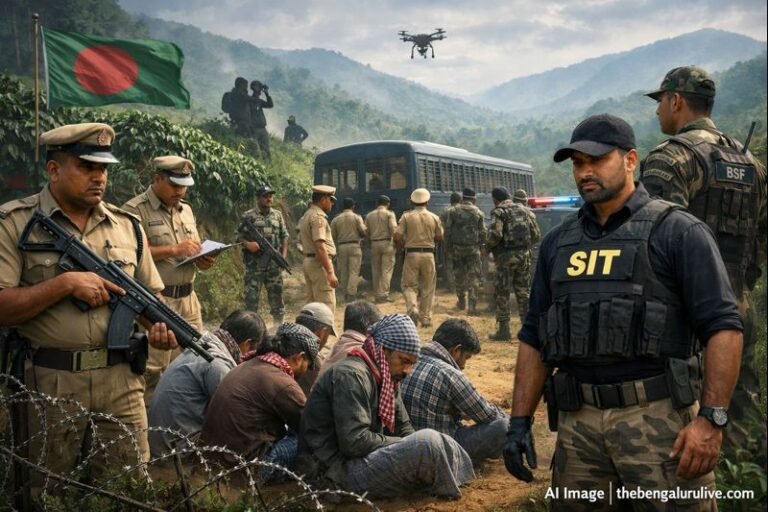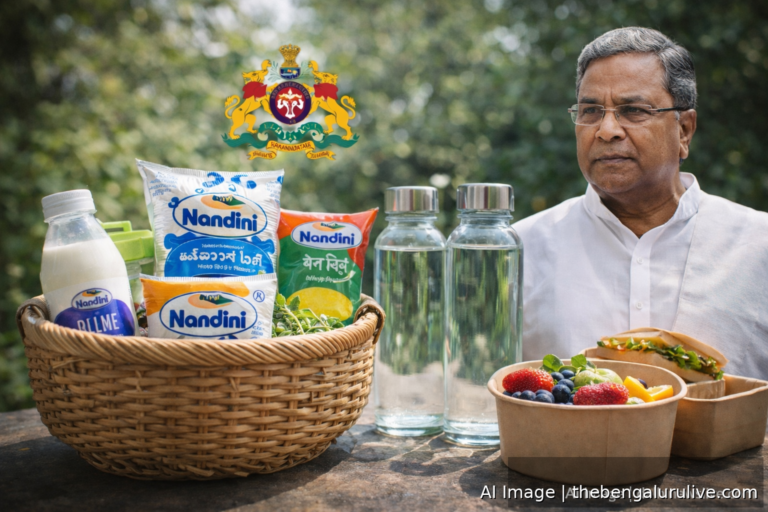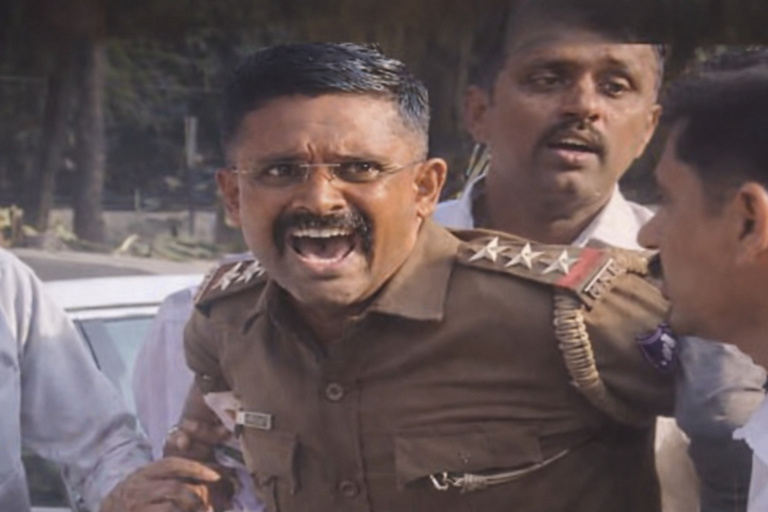
pic source: https://dailyresearchplot.com/
Continuing Karnataka Curfew has added to despondency of Muslim faithful
BENGALURU:
This year’s Ramzan Eid, which falls on May 14 and marks the end of the holiest month in the year for Muslims and the start of a new year, comes at a time when the dreaded coronavirus has taken the joy and fervour out of the religious observations of the Muslim community, as it has with other communities in the country.
While some sections were ‘luckier’ this year in that they could observe their religious festivals just before the second Covid-19 wave started its countrywide rampage, the Muslim community in particular has faced a painfully hard time during the holy month of Ramzan, even more so than during the first Covid wave last year. Ramzan is the ninth month of the Islamic calendar, when Muslims worldwide refrain from eating and drinking from dawn to dusk and break their fast in the evening.
This time, the obligatory fasting and prayer has come under the shadow of desperate scrambles for oxygen and hospital beds and the grim prospect of not being able to give a proper burial to loved ones who have succumbed to the infection.
Desolate mosques
Like other places in the country, Bengaluru has seen mosques turn silent and desolate, and generally bustling Muslim localities deserted, while ‘iftar’ parties and late-night shopping are but a distant memory. Besides, being a large minority, it is inevitable that many in the community have some kin or friends hospitalized with the infection or have even lost near and dear ones.
Says Khurshid Alam, a small shopkeeper in the congested Shivajinagar area of Bengaluru, “The end of Ramzan is a joyous time for family and friends, but instead it has been a black month with so many known to me infected or having succumbed to the virus.” For him, as for nearly all of his community members in Bengaluru, the prospect of the morning ‘sehri’ or breaking the fast in the evening at the many food stalls in the city is sadly out of the question, what with the Covid regulations banning public gatherings.
Another small-time businessman, Jabbar, notes how he used to spend generously on ‘iftar’ meals for his family, despite his tight financial circumstances. “But this time, even this little occasion for bonding with family and friends over good food has gone out of the window when all we hear and see is about people we know getting hospitalized or dying from the virus,” he rues.
At the other end of the economic spectrum, the richer class of the community have, like other affluent Bengalureans, hunkered down in their houses and apartments and have turned to online delivery services for food and other requirements.
Wakf board guidelines
Sadly, this year’s Eid will not provide a respite to Bengaluru’s Muslim community as the lockdown in Karnataka is, as of now, scheduled to end several days later on May 24. Besides, there are standing instructions from the Karnataka Wakf Board against crowding during masjid prayers, or performing ablutions at communal taps in mosques. In fact, the authorities have appealed to the community, especially the under-10s and the over-60s, to mark the end of the holy month by praying in the safety of their homes.
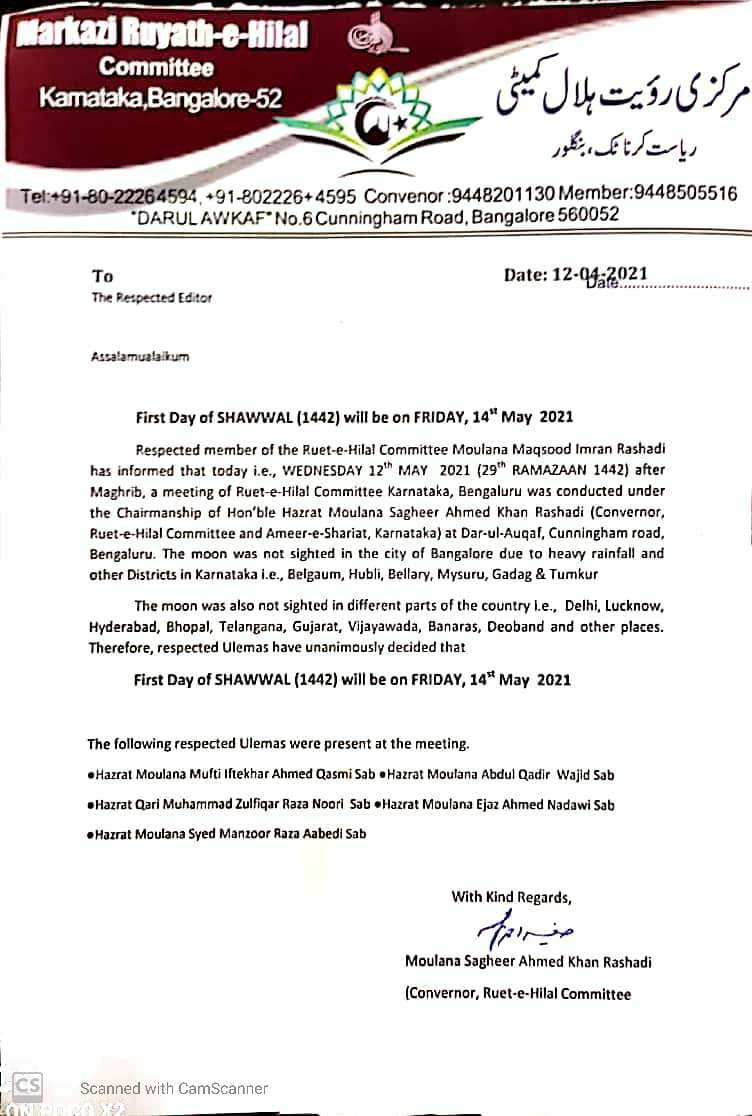
Social media too has picked up on this ‘Covid-safe’ trend of adhering to Covid protocols, with hashtags like ‘EidAtHome’’ and ‘’SayNoToEidShopping’ gaining eyeballs on Twitter.
Appeal by clerics
While Jamiat Ulema-e-Hind president Maulana Arshad Madani has called on the community to adhere to Covid-appropriate behaviour while offering Eid prayers, other clerics like Ahmed Bukhari of the Delhi Jama Masjid and Mufti Mukarram Ahmed of the Fatehpuri mosque have through video messages asked the community to offer Eid prayers at home.
Eid announcement
Meanwhile, according to a release by Moulana Sagheer Ahmed Khan Rashadi, Convenor, Ruyath-e-Hilal Committee, Karnataka, the first day of Shawwal (1442) will be on Friday, May 14 (Ramzan Eid). A meeting of the committee in Bengaluru on Wednesday decided that since the moon was not sighted in Bengaluru, or in other parts of Karnataka, or in other parts of the country, the first day of Shwawwal (1442) would be Friday, May 14.
Quarter million Covid deaths
Meanwhile, at the national level, Wednesday saw 4,205 Covid fatalities, raising the total death toll to 2,54,197. According to the Health Ministry, 3.48 lakh new cases were recorded, taking the cumulative caseload to over 2.33 crore.


